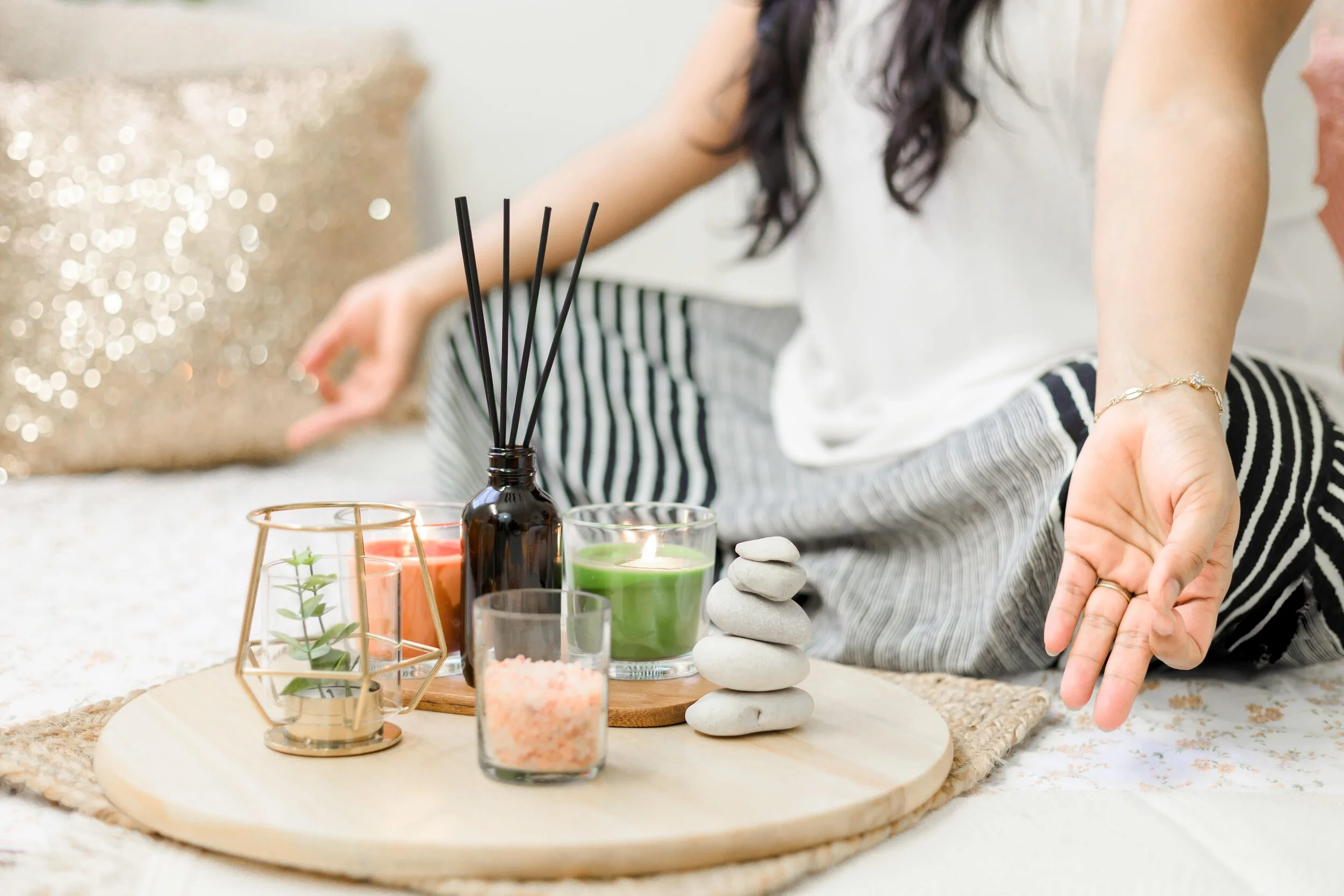The Power of Self-Validation
/by Katherine Bracken, Ph.D.
You Have An Emotional Superpower…You Just Don’t Know It Yet
Emotions, am I right?
Emotions can seem overwhelming
The way in which we relate to our own emotions can impact our wellbeing on a day-to-day basis, and it can have a major influence on how we respond in times of distress. Sometimes clients have a very intense relationship with their emotions, so much so that it can at times create difficulties in their daily lives (e.g., “Emotions are everything.”). Sometimes clients have the opposite – a contentious relationship at best (e.g., “Emotions are the worst. I wish I could just turn them off.”). Sometimes clients are overwhelmed by the very idea of emotions (e.g., “I don’t know what I’m feeling!”).
Although there is no “one-size-fits-all” instruction manual for emotions, there is a powerful and effective first step to gaining more of a sense of connection to and influence on your own emotional experiences, and that is the practice of self-validation.
What is self-validation?
Self-validation is a simple concept, and yet it is often a challenging skill to implement. Self-validation is the practice of acknowledging what you are feeling at any given moment without judgment and noticing how the emotion(s) make sense (e.g., “Yes, I’m feeling anxious right now, which makes sense because…”).
Unfortunately, many of us have a habit of invalidating ourselves instead, particularly during times of discomfort or distress. There are many reasons we may invalidate our own emotions. We may have been exposed at a young age to invalidation by family members or social groups which can result in no longer trusting our own emotional reactions, and we may therefore internalize the invalidation we have heard from others. A few other reasons may be:
1.) we don’t want to feel uncomfortable feelings, so we try to talk ourselves out of them (e.g., “I don’t like feeling this anxious. Why can’t I stop feeling anxious?”),
2.) we have judgment about ourselves and/or the emotion (e.g., “I’m so pathetic for feeling anxious about this.”), or
3.) we invalidate ourselves through logic/reasoning (e.g., “It doesn’t make sense for me to feel anxious right now. I shouldn’t be feeling anxious about this!”).
The truth is 1.) we have influence but not total control of our emotions, so trying not to feel something when you already do is an impossible task, 2.) judgment tends to just add more fuel to the fire by adding emotion on top of emotion (e.g., “Now I’m angry about feeling anxious!”), and 3.) all emotions make sense somehow, even if you can’t identify the reason in the moment, otherwise you wouldn’t be feeling them! In other words, emotions don’t just come from nowhere. Acknowledging our emotions and where they may be coming from can be step 1 in determining what to do next. After validating our emotions, we may find it effective to either sit with the emotion, use a skill to shift the emotion, distract, self-soothe, resist urges, do the opposite of what the emotion is telling us to do, check the facts of the situation, etc.
Why self-validate?
Think about a time when you have tried telling a friend or family member about something that is upsetting to you, only to hear them respond with, “Why are you so upset about that?” “You’re being too sensitive,” or “You know what you should have done…..” Did you feel your emotions get bigger and louder? What would happen to your emotions if they had instead responded with, “Of course you’re upset. I would be too if that happened to me!” There is usually some relief to the emotions and a deeper sense of understanding in those moments. We often seek validation from others, and it can be very effective to practice this ourselves because validating an emotion is itself an emotion regulation tool. In fact, MRI studies show that when we simply label an emotion we are experiencing (e.g., “I feel sad.”) it decreases activation in the emotion centers of the brain (Liebermen et al., 2007). This is likely because emotions are like little alarms, trying to give us information about what’s happening. When we ignore, suppress, or invalidate our emotions, they can get louder to make sure we hear them and pay attention to them. To acknowledge and validate emotions without judgment allows us to start to soothe ourselves, and it can also make it easier to then practice other coping skills if need be. Ultimately self-validation helps us have a healthier relationship to our own emotions and feel more powerful in our influence over them.
What if the emotion doesn’t fit the facts of the situation?
All emotions are valid, and some emotions can be unjustified based on the current circumstances. As an example, if someone has a phobia of snakes and walks up to a reptile exhibit at the zoo, they may feel intense panic and urges to run away. Panic in this situation is valid (because they have a snake phobia and are faced with a snake), but not justified (the snake is behind glass and poses no actual threat). This person can still validate themselves first before using a coping skill to confront their fears (e.g., “I feel panic and fear, which makes sense because snakes have always been scary to me. This is hard. And I can practice deep breathing and remind myself I am safe.”).
What if I don’t want to feel this way? Won’t self-validation make me feel worse?
If you are in the habit of invalidating yourself and suppressing or avoiding emotions, particularly if you grew up in an environment where others invalidated you, it can be scary to try self-validation. There could be an increase in intensity of emotions at first, because you are allowing yourself to open the door to emotions. However, it is important to remind yourself that emotions themselves are not harmful, they never last forever, and there is no emotion you have never experienced before. Although we can periodically avoid or suppress an emotion, we cannot avoid emotions entirely forever. Self-validation allows for you to move through the emotion effectively, rather than feeling as though your emotions are a shaken soda bottle with the lid coming off when you least expect it. Once you get in the regular practice of self-validation, you’ll find that emotions often become less intense and scary over time.
What if I don’t know what I’m feeling, or don’t know where the feeling is coming from?
Identifying emotions and putting a label on them can be incredibly helpful, and sometimes that is a challenge in and of itself. Sometimes you’ll know the emotion(s) but be completely at a loss as to why you’re feeling that way. In those moments, it can be helpful to have a script, such as “I don’t know exactly what I’m feeling or why, and I know that whatever it is there is a reason for it that makes sense.”
Naming emotions can be Helpful
It can take time to figure it out, or it may just be a moment and feeling that passes. Approaching it with non-judgmental, gentle curiosity (e.g., “Hmm…. I know I’m feeling something big right now. I wonder what it could be?”) will feel more effective than judgement and invalidation, which typically creates bigger and more intense emotions.
Next time you notice an emotion arise, try to take a moment to pause and observe it with curiosity. Let yourself know that you feel the emotion, and that there is a reason you are feeling that emotion. Our emotions are an important part of us, and all emotions are valid. Self-validation is one skill that takes time and practice, and you are worth the effort.
If you are interested in learning more about emotions and how to navigate them, please consider joining Dr. Bracken’s group on Emotional Resilience. The group starts in late January or early February and will run for 8 weeks on Wednesdays from 12pm-1:30pm. The start date is somewhat flexible depending on enrollment. This is a virtual group. If you are interested, contact us at 919-245-7791 or admin@breytapsych.com for more details.
Katherine Bracken, Ph.D. is a licensed psychologist with extensive training in DBT. As a clinician, she focuses on balancing acceptance and change, processing, and skill development. She prioritizes creating an environment where all clients feel safe and supported. If you would like to make an appointment with Dr. Bracken or join her upcoming group, contact us today.
















